IUC 45 SPEAKERS
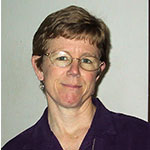
Dr. Deborah Anderson, Project Lead SEI/Researcher, Dept. of Linguistics, UC Berkeley
Deborah (Debbie) Anderson runs the Script Encoding Initiative through the Department of Linguistics of UC Berkeley. She also is chair of the Script Ad Hoc, which previews all new non-CJK and non-emoji proposals before they are seen by the UTC. She interacts with new script proposal authors and relays comments from the Script Ad Hoc so new proposal authors can improve their proposals.
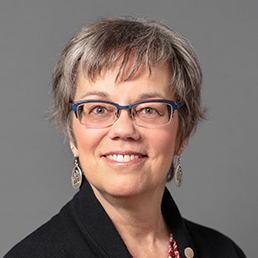
Julie Anderson, Advisor, Translation Commons
Julie Anderson is a linguist committed to minority languages and projects that support linguistic diversity. At the PanLex project of The Long Now Foundation, a nonprofit in San Francisco, California, she was part of the leadership team that built the world’s largest lexical translation database, containing data on 5,700 languages. In other nonprofit experience, she administered a youth soccer league for 15 years. At Translation Commons, Julie helped develop the COVID-19 Multilingual Poster-Maker, advises the Talent Group, and is helping develop the Language Digitization Initiative. Julie holds a masters in linguistics from the University of Hawaii. When she is not working, she is practicing her favorite language, Indonesian, and hiking on the California coast.

Annemarie Apple, CLDR-TC Vice-Chair
Annemarie is a program manager on Android at Google. She holds a B.A. in linguistics and Dutch studies from the University of California, Berkeley.
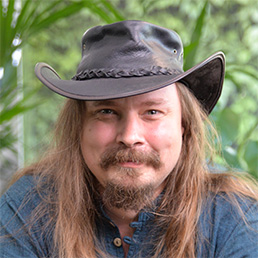
Eemeli Aro, Staff Software Engineer, Mozilla
Eemeli sort of stumbled into the world of JavaScript localization almost a decade ago, and hasn’t found his way out yet. He works at Mozilla on localization systems and toolchain management. Eemeli also maintains the messageformat and yaml JS libraries along with a host of others, and actively participates in various efforts to improve JavaScript localization.
Eemeli is a voting member of the OpenJS Foundation Cross Project Council, an ECMA-402 representative, an active participant in the Unicode MessageFormat Working Group, and is really looking forward to organising meetups and conferences again in a post-pandemic world.

Zibi Braniecki, Platform Internationalization TLM, Mozilla
Zibi Braniecki is a Platform Internationalization Tech Lead Manager at Mozilla working on Mozilla Platform (Gecko), product (Firefox) and Web Internationalization and Localization technologies. Zibi is one of the authors of the Fluent Localization System and he represents Mozilla at TC39/ECMA-402 committee, MessageFormat 2.0 and ICU4X Work Group. When not in front of the keyboard, he's captaining the Polish National Team in Ultimate Frisbee.
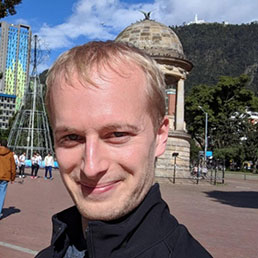
Mathias Bynens, JavaScript Whisperer, Google, LLC
Mathias is a web standards enthusiast from Belgium who currently works on Chrome DevTools. He likes HTML, CSS, JavaScript, Unicode, performance, and security.
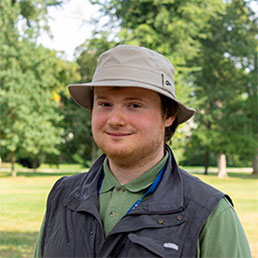
Shane Carr, Senior Software Engineer, Internationalization, Google, Inc.
Shane Carr is a Senior Software Engineer on Google's i18n Engineering team. He is co-chair of the ICU4X Subcommittee, convener of the ECMA-402 subcommittee for JavaScript i18n standards, and a core contributor to the International Components for Unicode (ICU) project. This is Shane's fifth year presenting at the Internationalization & Unicode Conference (IUC). He has previously spoken about ICU locale data, Zawgyi, and number formatting, as well as ICU4X and ECMAScript. Before entering the internationalization field, Shane presented at the 33rd International Conference on Machine Learning (ICML) and the 2015 Annual Meeting of the American Institute of Chemical Engineers (AIChE). He holds an MS and a BS in Computer Science and a BS in Chemical Engineering summa cum laude from Washington University in St. Louis.
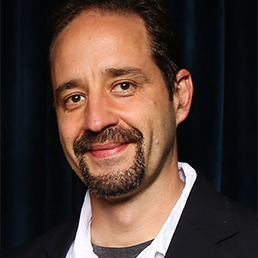
Nebojša Ćirić, Internationalization Team TL/M, Google, Inc., Vice-chair ICU4X Subcommittee
Nebojša Ćirić is a TL/M of internationalization team at Google and vice-chair of the ICU4X Subcommittee. He is one of the founders and ex-chair of JavaScript i18n standard - Ecma402, which is a main driver of i18n on the Web. His personal i18n goal is to make Slavic languages better supported in standards and libraries. He holds B.S. degree from School of Electrical Engineering, Belgrade, Serbia and M.S. degree in Computer Science from University of Florida.
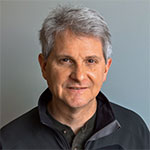
Peter Constable, Software Engineer, Google, Inc.
Peter is a Senior Program Manager for Globalization and Typography Standards at Microsoft and has participated for many years in work on Unicode and OpenType. In 2016, he led the cross-industry initiative to extend OpenType to support variable fonts, which was the most significant enhancement to OpenType in over 15 years and is now widely supported in operating systems and on the Web. Last 3 speaking engagements: - IUC 41 - "An Overview of Variable Fonts in OpenType 1.8" - TYPO Labs 2018 - "Steps Forward in Windows and OpenType" - ATypI 2017 - "Axes, Tuples and Deltas – Oh My!"ebojša Ćirić is an internationalization team's TL/M at Google. He was a founder and a chair of Ecma 402 effort. He is currently working on ICU4X effort, to develop ultimate i18n library - famous last words.
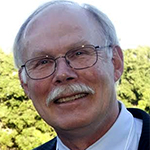
Dr. Craig Cornelius, Sr. Software Engineer, Google, Inc.
Craig Cornelius is senior software engineer at Google, supporting languages across all Google products. He contributes to the Unicode Standard.
He has held both academic and industry positions. Craig holds a Ph.D. in Chemistry and an M.S. in Computer Science from Stanford University.
Recent presentations:
- February 9, 2021 Session 2 - Advanced Language Documentation Webinar: “Digitizing Your Language - Fonts, Unicode, and More”
- November 24, 2020 - Workshops on Language and Nature in Southern Arabia: “Typing in My Language? Get Started with GBoard and Other Keyboards”
- October 9, 2020 - UNESCO Professors Community: “Text Keyboard, Font, Essentials for your language on the internet”

Craig R. Cummings, Sr. Product Manager, Amazon
Craig Cummings has been working in the field of software globalization for 30 years. Before his recent role as a Senior Technical Product Manager at Amazon, Craig worked at VMWare as a Consultant and Globalization Evangelist. Before that he worked with Informatica on big data internationalization and also worked at Zynga making games in a variety of languages including Arabic. At Yahoo! Inc., he helped drive corporate technical strategy for internationalization with a particular focus on Middle Eastern markets. Craig was with Oracle's Tools and Applications globalization teams where he worked closely with Sun’s internationalization team to shape some of the pluggable locale, resource bundle, font, and supplementary character support in Java. Craig is in his fourth elected term as Vice-Chair of the Unicode Technical Committee (UTC) and ANSI INCITS L2 Committee Chair. The L2 committee primarily works to synchronize Unicode and corresponding International Standards Organization (ISO) standards. In his spare time, he works on emoji and indigenous language digitization. primarily works to synchronize Unicode and corresponding International Standards Organization (ISO) standards.

Jennifer Daniel, Creative Director, Emoji, Google
Jennifer Daniel is the Creative Director of Google’s emoji program and serves on the Unicode Emoji. subcommittee
Prior to joining Google, Jennifer was an Art Director and Graphics Editor at the New York Times for 10 years. During her time there, she worked in the newsroom covering a breadth of topics ranging from government shutdowns, the Olympics, and goth culture.
Acclaimed for her conceptual, clever, and content-driven approach to illustration and writing, her work has been widely published and recognized internationally most recently by the ADC, TDC, AIGA, and Fast Company. Her latest book, The Origin of Almost Everything, explores the universe through charts and diagrams, data, and other minutiae.
Last 3 speaking engagements:
- Talk to Me, Typographics, 2018
- Fuse Design Conference, 2018
- Nordic.design Conference 2018
- IUC 44 Conference 2020
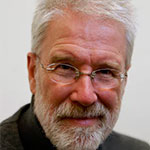
Mark Davis, Lead Internationalization Architect, Google, Inc.
Mark Davis is the president and co-founder of the Unicode Consortium. He also founded the Unicode ICU project, the premier Unicode software internationalization library, and also co-founded and is the chair of the Unicode CLDR project, providing language-based data for internationalization. The Unicode Standard, CLDR, and ICU are used by every modern computer and mobile phone to support different languages. More recently, he was one of the team that introduced emoji into Unicode and was the co-founder and chair of the Unicode Emoji Subcommittee up through 2019.
Davis is one of the key technical contributors to other Unicode specifications, being the primary author or co-author of LDML (structured data for languages and locales), Collation (sorting and searching different languages), the Bidirectional Algorithm (used worldwide to display Arabic and Hebrew text), Normalization, Scripts, Text Segmentation, Identifiers, Regular Expressions, Security, and Emoji. He is a co-author of BCP 47, the specification used for identifying languages and countries in modern software.
The contributions to Unicode reflect Davis’s software internationalization work over the course of his career, starting with Apple in 1985, continuing at Taligent and IBM, and then at Google since 2006. His goal has always been to advance, broaden and deepen the support for languages in the digital world, and he is very grateful for the support for this goal from these companies.
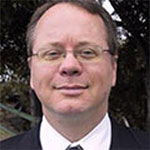
Jim DeLaHunt, Principle, Jim DeLaHunt and Associates
Jim DeLaHunt is a Vancouver, Canada-based software engineer and consultant in multilingual websites, and a seasoned software developer and manager. He is a founder of VanGLUG, the Vancouver Globalization and Localization User Group. He is a volunteer with the Universal Access Steering Group (UASG). He contributes to numerous free software and free culture projects and is in the top 10% of Stack Overflow contributors on topic "unicode". He is a regular Unicode conference participant. Earlier, he worked for Adobe Systems. Jim is a licensed paraglider and airplane pilot, and sings tenor with an opera company and a chorus in Vancouver. You can contact Jim at http://jdlh.com/.
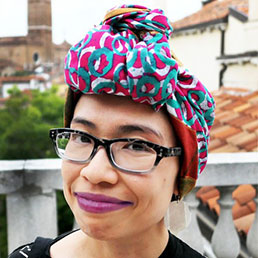
Arlene Ducao, Founder, Adjunct Professor, Multimer, NYU & CUNY
Arlene Ducao (they/zey pronouns) is a creative engineer, educator, and writer who co-designs technologies that examine the relationship between the natural landscape, our built environments, and ourselves. They are the Co-founder and Principal of Multimer (a U.S. Government EDWOSB-certified micro-entity and spinoff from MIT Media Lab), where they invented MindRider, the geospatial brainwave-mapping system profiled in WIRED, New York Times, Discovery Channel, MSNBC, Fast Company, Science Channel, and many more. They teach at NYU, CUNY and MIT, where they present a range of topics including community-oriented data visualization, diversity + technology, and computer science for the recently incarcerated. Their work has been published in journals including the International Journal of Community Well-being (Springer, 2020) and books including Data, Architecture, and the Experience of Place (Routledge, 2018) and Instrumental Intimacy: EEG Wearables and Neuroscientific Control (JHU Press, 2017). They are also an organizer for FUREE (Families United for Racial and Economic Equality), a member of the Fulbright Specialist Program, and a satellite data contributor for the Save Lamu Alliance in Kenya. Arlene Ducao is a Joint Council Member of labor union ACT-UAW 7902, and they hold degrees from UMD, SVA, and MIT.
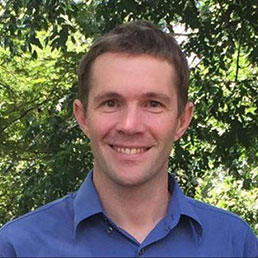
Marc Durdin, Keyman Team Lead, SIL International
Marc Durdin is a member of SIL International and is the team lead for the open source Keyman input method project. He first became interested in discovering solutions to multilingual keyboard input while living in Laos in the 1990's and subsequently wrote the first version of Keyman to support Lao on Windows 3.1. He holds a Bachelor of Computing from the University of Tasmania.
Some past presentations include the IUC conferences, UNESCO LT4All Conference, HELISET TŦE SḰÁL – ‘Let the Languages Live’ conference. Nearly 30 years after first writing Keyman, Marc is still passionate about multilingual computing. He currently lives in Hobart, Tasmania, Australia.

Dr. Martin Dürst - Professor, Aoyama Gakuin University
Dr. Martin J. Dürst is a Professor in the Department of Integrated Information Technology at Aoyama Gakuin University in Japan. Martin has been one of the main drivers of internationalization and the use of Unicode on the Web and on the Internet. He published the first proposals for domain name Internationalization and composite character normalization and is the main author of the W3C Character Model and the IRI (Internationalized Resource Identifier) specification. He has also been contributing to the implementation of the Ruby scripting language, mostly in the area of internationalization, since 2007. Martin teaches in Japanese and English, speaks fluent German, can get around in French, and studied Italian, Spanish, Russian, and Latin.
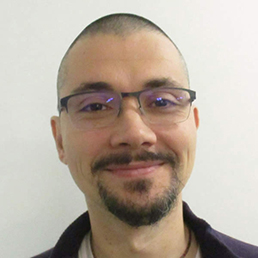
Filip Filmar, Software Engineer, Google, LLCechnical Advisor, Early Stage Innovation
Filip is a software engineer at Google. Currently working on localization and input of the Fuchsia operating system.
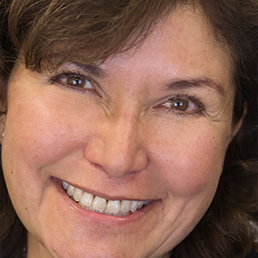
Claudia Galván, Technical Advisor, Early Stage Innovation
Claudia Galvan is a technical advisor to startups looking to expand internationally. Claudia is considered an expert in software internationalization. She has been responsible for building international teams from the ground-up and the technology used in platforms in Fortune 500 companies reaching billions of users around the world.

Andrew Glass, Senior Project Manager, Microsoft
Dr. Andrew Glass is Senior Program Manager in the Experiences and Devices Group at Microsoft. Since joining Microsoft in 2008 he has specialized in font rendering, keyboards, and input-related user experiences. Andrew is the current chair of the CLDR Keyboard Subcommittee. He holds M.A. and Ph.D. degrees from the University of Washington in Sanskrit and Buddhist Studies. He is co-editor of “A Dictionary of Gāndhārī” (gandhari.org, 2002–) and author of “Four Gāndhārī Saṃyuktāgama Sūtras” (University of Washington Press, 2007). His contributions to Unicode include proposals for the Kharoṣṭhī and Brāhmī scripts, and Egyptian Hieroglyph Format Controls. Andrew is the author and maintainer of Microsoft's Universal Shaping Engine specification. Prior to joining Microsoft, he taught at the University of Washington, University of Leiden, and Bukkyō University in Japan.
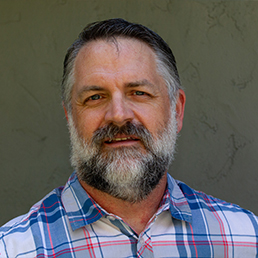
Joshua Hadley, Senior Computer Scientist, Adobe, Inc.
Josh has been professionally involved in the world of fonts and typography since the early 1990s. Based in the San Jose, California area, he develops font tools and technologies for Adobe Fonts and is a member of Adobe's Open Source Advisory Board.
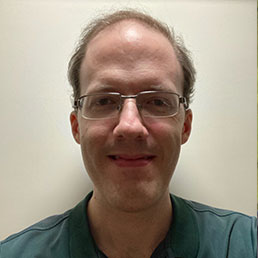
Joshua Horton, Keyman Predictive Text Lead, SIL International
Joshua Horton is a member of SIL International and is the team lead for Keyman's predictive text engine. His interest in machine learning led him to discovery of the many technological issues faced by under-resourced language communities, where the large datasets needed to facilitate conventional big-data approaches are extremely hard to come by. He holds a Doctorate in Computer Engineering from the University of Florida and currently lives in Phnom Penh, Cambodia. He spoke most recently at The Sixth Asian Conference on Information Systems (ACIS2017) in Phnom Penh, Cambodia.

Bex Hurwitz, Founder, Tiny Gigantic
Bex Hong Hurwitz (they pronouns), founder of Tiny Gigantic, is an enthusiastic breaker and maker of technology for social justice. They see holistic security as one of many super powers social justice movements have to care for each other, be more sustainable and stand stronger against injustice. To them, digital security and safety issues are directly connected to ways that we can better design, use, and regulate technologies for social justice. Bex is part of queer and Korean Adoptee movements in the U.S. and they find inspiration and wisdom in working alongside others with the deep understanding that our liberation is linked. Bex was a co-founder of the technology cooperative Research Action Design (rad.cat) with whom they codesigned web platforms with social justice activists and led privacy and security training with the New York Public Libraries and the New York City Mayor’s Office of Immigrant Affairs. They hold a BS from the Massachusetts Institute of Technology (2003) and an MA from University of California Berkeley in Information Science (2010) and were a 2017-2018 Fellow with Data and Society and a 2017 Digital Integrity Fellow with the Open Technology Fund.

Richard Ishida, Internationalization Lead, W3C
Richard Ishida is helping to make the World Wide Web worldwide. He leads the internationalization work at the World Wide Web Consortium, working with developers of specifications and implementers to ensure that Web technologies allow universal access to the Web, regardless of language, script, or culture. He has a background in translation and interpreting, computational linguistics, translation tools, and global user interface design. He also serves on the Unicode Editorial Committee and the Unicode Conference board.

Norbert Lindenberg, Internationalization solutions Developer, Lindenberg Software LLC
Norbert Lindenberg develops software internationalization solutions, currently focusing on fonts and on-screen keyboards for Brahmic scripts such as Balinese and Khmer. He previously edited the ECMAScript Internationalization API Specification, implemented the API in Firefox, and designed support for Unicode supplementary characters in JavaScript. Before that, he led internationalization projects at Yahoo!, Sun Microsystems, General Magic, and Apple Computer.

Steven Loomis, Senior Software Engineer
Steven R. Loomis, is a Senior Software Engineer. A former member of IBM’s Global Foundations Technology Team for 20 years, he was IBM's primary representative to Unicode-TC. He was a co-founder of the Unicode Common Locale Data Repository (CLDR) project and developed its Survey Tool data collection application. Past speaking engagements include NodeSummit, JavaOne, the IUC conferences, the International Mac Users (IMUG), the Localization Certification Program of CSU Chico, as well as internal IBM events. His hobbies include Maltese language advocacy.
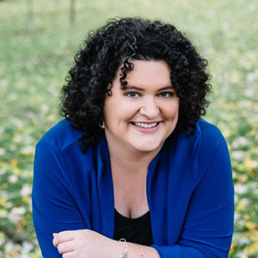
Gretchen McCulloch, Internet Linguist
Gretchen McCulloch is an internet linguist: she explores the language of the internet for the people of the internet. She’s the author of the New York Times bestselling book Because Internet: Understanding the New Rules of Language, which was published by Riverhead (Penguin) in July 2019 and has been reviewed in the New York Times, the New Yorker, the Economist, TIME, the Atlantic, NPR, and Science Magazine. Because Internet was also named a Best Book of 2019 by TIME, Amazon, and the Washington Post.
McCulloch writes the Resident Linguist column at Wired and has also written for the New York Times, New York Magazine, Slate, the Washington Post, the Wall Street Journal, and The Toast. She has a master’s in linguistics from McGill University and has spoken at SXSW and EmojiCon. McCulloch is the creator of the daily linguistics blog All Things Linguistic, and the co-creator of Lingthusiasm, a podcast that’s enthusiastic about linguistics. She is Canadian and lives in Montreal, but also on the internet. You can follow her on Twitter @GretchenAMcC.

Mike McKenna, Director World Ready Engineering, PayPal, Inc.
Mike is a Globalization Architect and Director of World Ready Engineering at PayPal. He is responsible for next generation Globalization Frameworks for PayPal built on Node.js, Java, and web services as well as evangelizing a Globalization First culture across PayPal and providing G11n training and support to PayPal product teams.
Mike is a specialist and leader in globalization of software ranging from small systems to whole architectures with over two decades of internationalization experience. He is a licensed professional engineer with extensive experience consulting or leading globalization projects for a number Fortune 500 companies and has a background in global web design, e-commerce, application design, social games, database internals, distributed bibliographic systems, test engineering, global product management, and ethnographic research.
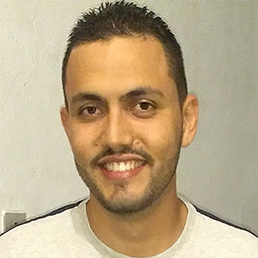
Robert Melo, Software Engineer, Apple
Robert Melo started working for Apple in 2021, acting as Software Engineer, oriented for SW internationalization & localization initiatives. Previously, he worked at Motorola for 7 years, helping to build a set of tools focused on Test Automation and Globalization experiences. In the last three years, he led Motorola Android Internationalization team by providing technical guidance for the network of linguists and SW engineers, enabling font/language support, participating in internationalization/bidi-enabling projects, development of i18n tools as well as assisting in analyzing and fixing potential localization/internationalization problems. Robert holds B.S. from Unicap (Catholic University of Pernambuco, Brazil) and M.S. in Computer Science from UFPE (Federal University of Pernambuco, Brazil).

Mihai Nita, Senior Software Engineer, Google, LLC
Mihai Nita has been working in the localization/internationalization field for 22 years now and is still learning. He covers "everything internationalization related", from C/C++ to Java to web technologies, from desktop and client/server to mobile, life, the universe and everything.
He started at a small localization company in Silicon Valley, where he completed projects large and small, for well-known or less-known companies. As an I18N architect at Adobe he had a hand (and code) in Acrobat, Creative Suite, and Flash Player. He then helped Netflix move from an English-only company to Canada, Latin America, and part of Europe. For his community contributions he was awarded as Microsoft I18N MVP for 6 years in a row.
Since 2013 Mihai has been working on internationalization at Google, focusing on the internationalization libraries, best internationalization practices, localization tooling, and added multilingual support to Android N.
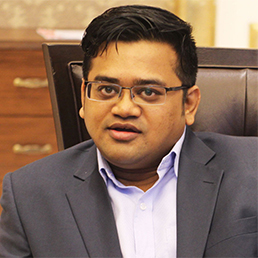
Muhammad Noor, Co-Founder and Managing Director, Rohingya Project
Muhammad Noor, a Rohingya himself, has established several Rohingya institutions and trained several highly regarded members of the Rohingya community worldwide. His most notable contributions include the digitization and Unicode of the first Rohingya Alphabet, serving as the chairman of Rohingya Football Club, authoring “Born to Struggle: The Child of Rohingya Refugees and His Inspiring Journey” and working on several assignments with the UN High Commission for Refugees, the Red Cross, International Organization for Migration, International Network of Human Rights. Noor is the Co-Founder of Rohingya Vision (RVISION), the world’s first Rohingya Satellite television channel.

Erik Nordin, Software Engineer, Mozilla
Erik Nordin is a software engineer on the Firefox Platform Internationalization team at Mozilla. He is a member of the ICU4X Unicode sub-committee, focusing on implementing TimeZoneFormat operations. When not working with computers, Erik can be found playing violin and guitar for his two cats (and occasionally other people).

Dr. Anshuman Pandey, Research Associate, SEI, Dept. of Linguistics, UC Berkeley
Anshuman Pandey is a data scientist in marketing analytics and the head of the ‘voice of customer’ program at Avant, a fin-tech company in Chicago. He pursues his passion for text, scripts, and internationalization as a research associate with the Script Encoding Initiative. He has encoded over two dozen scripts in the Unicode Standard, including various character additions and a few emoji, and has a few dozen other scripts in the pipeline.
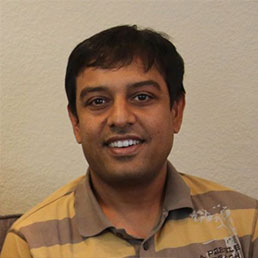
Samuel Parmar, Senior Engineering Manager, Salesforce
Samuel Parmar is an Engineering Manager for Globalization team at Salesforce. Samuel has worked as Globalization Engineer and Software Engineer at Salesforce, Ericsson and other companies for over 15 years.

Aditya Bayu Perdana, Senior Principal Engineer, Amazon.com
Aditya Bayu Perdana is a junior architect who likes to delve into typography in his spare time. His typographic work and interest are mostly about Indonesia’s pre-Latin writing systems, including Javanese, Balinese, Lontara, Batak, Sundanese, and various others. Each of these scripts have fascinating history and application, but most have been supplanted by Latin in everyday use. It is his hope that his typographic work on Indonesian scripts would reignite interest in these fascinating scripts and renew them for the modern design world.
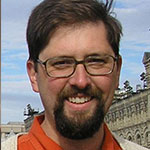
Addison Phillips, Senior Principal Engineer, Amazon.com
Addison is the engineering lead for Amazon's Consumer division, responsible for internationalization tools and libraries and enabling global expansion. He was previously the international architect for Amazon's Lab126, enabling products such as the Kindle, Fire, and Echo. In the industry for over 30 years, he is the current chair of the W3C Internationalization Working Group and a co-author of IETF BCP47. He lives in Dillon Beach, California.

Andrew Poblocki, Software Architect, Salesforce
Andrew (Andrzej) Poblocki is a globalization architect at Salesforce who is passionate about delivering a software that will delight international customers. During his over 15-year career in the globalization industry he has held various positions in localization and localization engineering. Currently he is responsible for expanding globalization test automation framework and implementing a truly scalable continuous localization solution.
Andrew is a frequent speaker in the LocWorld conferences:
- LocWorld 41: Collaboration to Create TM Best Practices
- LocWorld 35: Continuous Localization for CI/CD Process
- LocWorld 32: Customer Experience at the Speed of Now - Continuous Delivery Localization That Engages Users
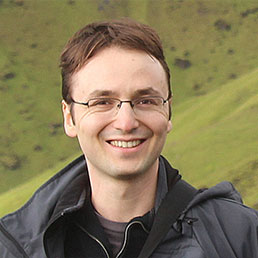
Konstantin Pozin, Senior Software Engineer, Google, LLC
Konstantin Pozin is a software engineer at Google working on internationalization for the Fuchsia operating system. A non-trivial portion of his spare time is devoted to languages, as well.
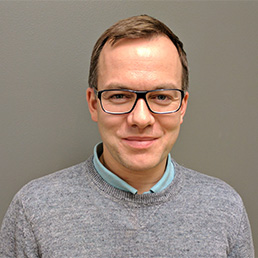
Dominik Röttsches, Software Engineer, Google, Inc.
Dominik has more than ten years of experience working on Web browsers. He is part of the Chrome browser's rendering team at Google, where he implemented and shipped support for variable fonts in Chrome and contributed numerous other improvements to text shaping and font code. Recently he's been working with Roderick Sheeter, Behdad Esfahbod, and Cosimo Lupo on making color variable vector fonts a reality.

Joel Sahleen, Globalization Architect, Domo, Inc
Joel Sahleen is the Globalization Architect at Domo, Inc, where he oversees the internationalization and localization of Domo's SaaS business intelligence offering, the Domo Business Cloud. He previously worked as a Senior Globalization Engineer at Adobe and briefly as a Language Engineer at the Wikimedia Foundation. He specializes in the development of continuous localization infrastructures, data-driven localization, and the internationalization and localization of SaaS platforms.
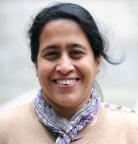
Alolita Sharma, Director, Unicode Consortium
Alolita Sharma is a board director of the Unicode Consortium, an invited expert on W3C workgroups and board director at Wikitongues. Alolita is passionate about language technologies that enable everyone to participate in the Web's information revolution. She is also Principal Technologist at Amazon Web Services where she drives open source strategy, infrastructure and programs for key open source projects. Alolita has managed engineering teams at Wikipedia, Twitter, PayPal and IBM. She has served on the boards of the Open Source Initiative (OSI) and SFLC.in. You can follow her on Twitter @alolita.
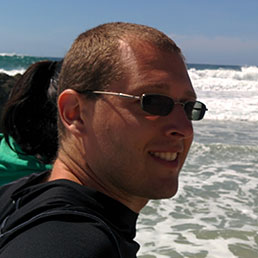
Roderick Sheeter, Staff Software Engineer, Google Fonts TL/M, Google, Inc.
Rod came to fonts by accident, having been rudely disabused of the notion text was a "solved problem." Four years later it's still not solved :) As an individual contributor and now Tech Lead/Manager on Google Fonts he helped to nudge along WOFF2 and unicode-range, bring the Google Fonts collection to Android, add CJK support to Google Fonts, and is now working on specification and Open Text Stack support for color vector variable fonts, with a particular eye to Emoji usage.
Last three speaking engagements:
- IUC43
- ATypI Japan
- IUC42
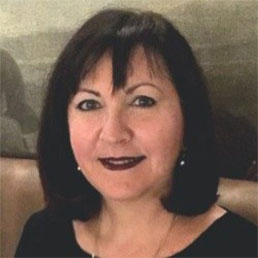
Jeannette Stewart, Founder, Translation Commons
Jeannette Stewart is a strategic leader helping brands achieve global growth, business revitalization and transformation. She founded Translation Commons, an online volunteer nonprofit community, offering free tools and resources, helping graduates acquire working experience and creating visibility through global impact programs such as the Language Digitization Initiative. As the CEO of CommuniCare, a life-science LSP she has been involved in high-profile projects such as the Genome Project and prototyping the online Unified Submission Process for the European Medicine Agency. She is committed to volunteerism and served on the board of directors of various educational, women’s and health charities.
Recent Presentations:
- European Commission Directorate-General for Translation; Translating Europe Forum 2020: “Professional Platforms, Joining Forces for a Resilient Language Industry During and Post Covid”, November 5th, 2020
- Panel Discussion GALA 2020: “The Languages of the Future: Beyond FIGSJ!” September 24th, 2020
- Panel Discussion Proz.com International Translation Day: “Effective Communication” September 14th, 2020

Shibi Sudhakaran, Senior Architect, PayPal
Shibi Sudhakaran is Senior architect at PayPal. Shibi is an innovator with 20 years of experience in designing, planning and implementing applications for large corporations including Sun Microsystems, Cisco, Citibank, Epiphany as well as small and medium-sized businesses. He is a contributor to multiple open source projects.

Luke Swartz, Product Manager, Google, LLC
Originally from San Francisco, CA, Luke Swartz has a BS in Symbolic Systems and MS in Computer Science from Stanford University. After graduation, he served as a nuclear submariner in the US Navy. Since 2010, he has been a Product Manager at Google. His projects with the Internationalization group included launching the Google+ social network in 60 languages, unifying Google language settings, improving Right-to-Left language support on Android, and making Google products work better for multilingual users.

Greg Tatum, Staff Software Engineer, Mozilla
Greg Tatum is a software engineer on the Firefox Platform Internationalization team. He is a member of the ICU4X Unicode sub-committee, focusing on implementing DateTimeFormat operations. He is working towards unifying and modernizing the internationalization code inside of Firefox, and helping to maintain and update Firefox's ECMA-402 JavaScript implementation. Before this, he spent four years working on Firefox DevTools and the Firefox Profiler.

Tex Texin, Chief Globalization Architect, Xencraft
Tex Texin is a consultant that has been providing globalization services including architecture, strategy, training, and implementation to the software industry for many years. Tex has created numerous global products, built internationalization development teams, designed best practices, and guided companies in taking business to new regional markets. Tex is also an advocate for internationalization standards in software and on the Web. He is on steering committees for open-source software and a leader in several globalization non-profits. Tex is the owner/author of the popular www.I18nGuy.com and winner of the Unicode Consortium's Bulldog award.
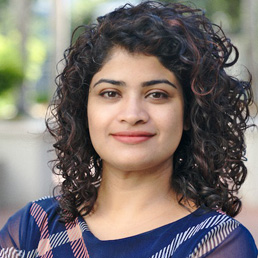
Neha Utkur, Engineering Manager, Paypal
Neha is an Engineering Manager leading i18n SDK development at PayPal working on internationalization infrastructure. She is subject matter experts on multi-regional identity logic, and has worked on improving localization automation system at PayPal. She has more than a decade of experience in previous jobs in microservice design, smart devices, root cause analysis and performance improvements as well as tools development. Outside of work she enjoys singing Indian Classical and Bollywood music and performs regularly with the PayPal band.
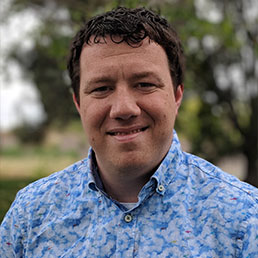
Daan Van Esch, Technical Program Manager, Google, LLC
Daan van Esch holds a BA and an MA in Chinese Studies from Leiden University, the Netherlands, where he worked on corpus linguistics and natural language processing for Chinese languages. Since 2013, he has been a Technical Program Manager with Google, where his current focus is internationalization of Google's automatic speech recognition (ASR) systems. He has also worked on bringing Google's smart keyboard for Android to 900+ language varieties, on internationalizing the Google text-to-speech system, and on improving the accuracy and language coverage of text-based language identification systems for web crawlers. Daan is also an advisory board member of the Australian Research Council-funded Centre of Excellence for the Dynamics of Language, advising on efforts to bring language technologies to endangered languages in Australia and beyond.
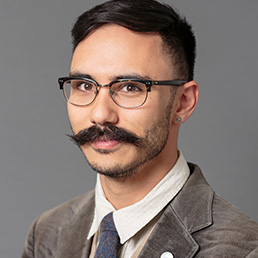
Ben Yang, Director of Technology, PanLex The Long Now Foundation
Ben Yang is a linguist specializing in writing systems and the Director of Technology for PanLex. He is the Unicode representative for The Long Now Foundation and is a regular participant in Unicode Technical Committee meetings and the Unicode Script Ad-Hoc. He has a strong interest in making technology more widely available to speakers of underserved languages and the preservation and digitization of traditional writing systems. He has presented at WikidataCon, the Unicode Conference, and the International Multilingual User Group (IMUG).